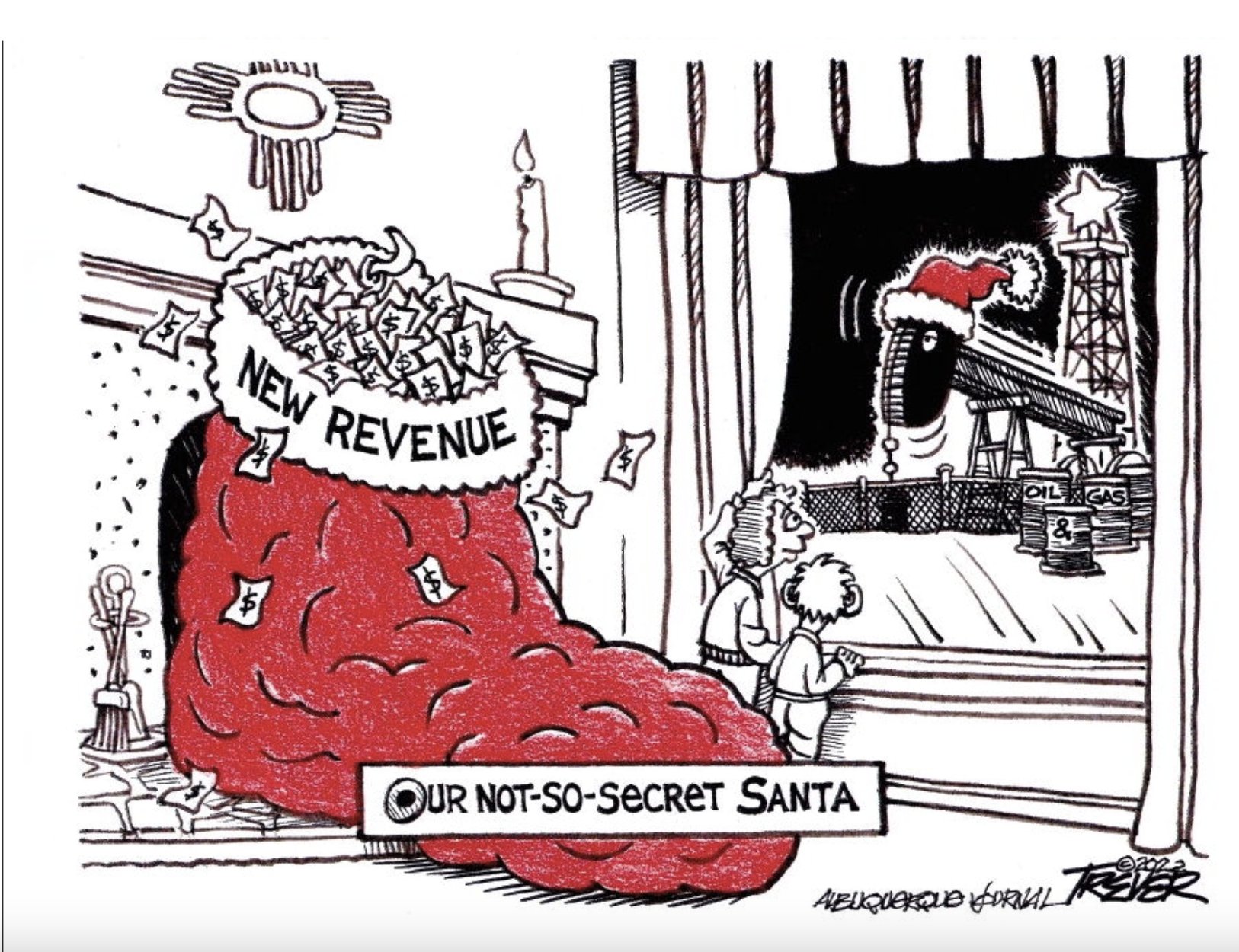Published opinion piece: Use surplus strategically to solve long-term problems
![]()
The following appeared in the Santa Fe New Mexican on December 24, 2022 and in numerous other news sources.
As the State’s Permian oil production boom continues in New Mexico the budget surpluses available to legislators each session grow as well. The latest announced budget surplus is $3.6 billion which is a positively mind-blowing 43 percent. This surplus is on top of already dramatic spending growth of 30 percent during the first four years of the Lujan Grisham Administration.
More spending growth this year is to be expected, but the capacity for government to continue expanding after years of rapid growth is somewhat limited by the ability of government to manage existing resources available to it. This is not surprising since New Mexico’s state and local government is already among the very largest in the nation.
But I’m not here to rail about the size of New Mexico government (at least not this time). Rather, I’m here to remind legislators of both parties that such massive surpluses present rare opportunities to lead our State to a better future.
Gov. Lujan Grisham has already proposed rebates of $750 or $1,500 for New Mexicans depending on marital status. Rebates are a bi-partisan idea, one supported in the recent campaign by her Republican opponent Mark Ronchetti, though details differed. To be clear the Rio Grande Foundation does not oppose tax rebates if they are not an excuse to (yet again) punt on long-overdue tax reform. Returning a portion of the budget surplus is not going to move New Mexico’s economy forward and diversify it in the same way as long-overdue tax reform would.
The same can be said for an idea that often garners bipartisan support in Santa Fe: that is bolstering various permanent and “rainy day” funds. Quite honestly, New Mexico has numerous big problems facing it. There is no better time to address these problems than right now. If policymakers use the surplus to diversify and improve the State’s economy in ways that will make it more competitive with its neighbors, the well-being of future New Mexicans won’t be so contingent on the vagaries of oil and gas.
New Mexico’s litany of current economic challenges includes:
- A low workforce participation rate that has historically lagged behind our neighbors and remains well below pre-pandemic levels and has even dropped in recent months;
- Poverty rates that are among the very highest in the nation;
- A medical provider shortage that, while driven in part by regulations is worsened by gross receipts taxation of medical practitioners including Medicaid services;
- Lack of economic diversity in a state that relies heavily on oil and gas for money and government (federal, state, and local) for employment opportunities;
- Water and other infrastructure issues.
These problems (and more) can at least partially be solved by using New Mexico’s financial largesse wisely. New Mexico policymakers have long focused on government-driven approaches to these problems. State and local government spends a very high percentage of the economy.
Majority Democrats have an opportunity to not only pump more funding into their priorities, but they could show that they are pro-business and interested in using oil and gas revenues to diversify the State economy for a time when the oil and gas industry isn’t as bullish.
Republicans, rather than leaving the bold ideas to Democrats, should offer their own serious reform ideas and bills in the upcoming session. Ideally, the minority GOP could influence Democrats toward a more pro-growth agenda. Worst case, in two years they can point to their detailed policy ideas and use them to challenge Democrats for failing to take advantage of this unique opportunity.
Regardless of your political affiliation or beliefs we all must realize that 43 percent budget surpluses don’t come around often. We can’t solve all of New Mexico’s problems even with this massive surplus, but with strategic moves like those outlined here we can certainly move the needle.
Paul Gessing is president of New Mexico’s Rio Grande Foundation. The Rio Grande Foundation is an independent, nonpartisan, tax-exempt research and educational organization dedicated to promoting prosperity for New Mexico based on principles of limited government, economic freedom and individual responsibility

